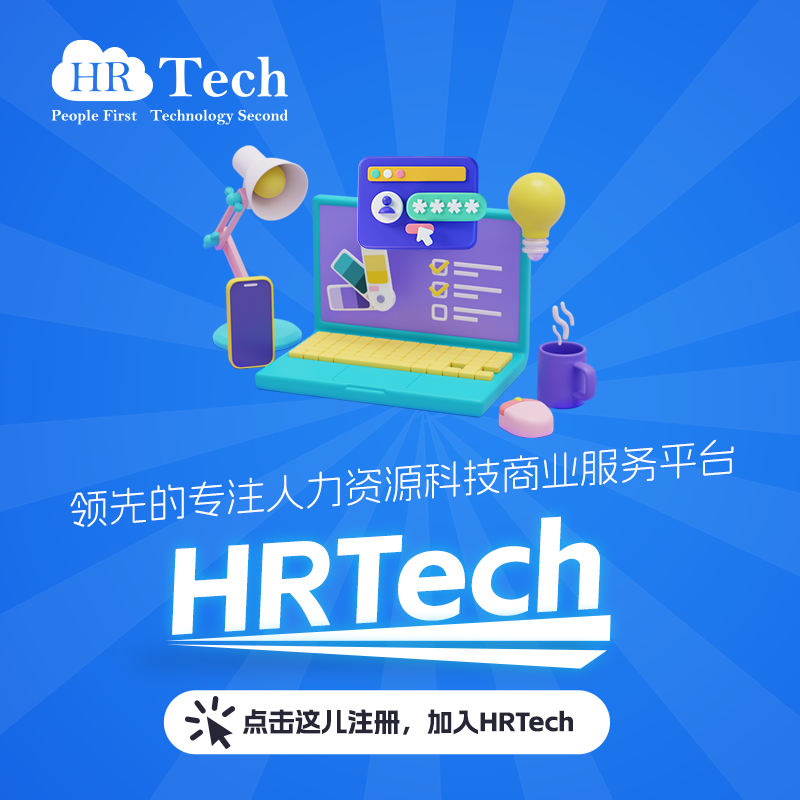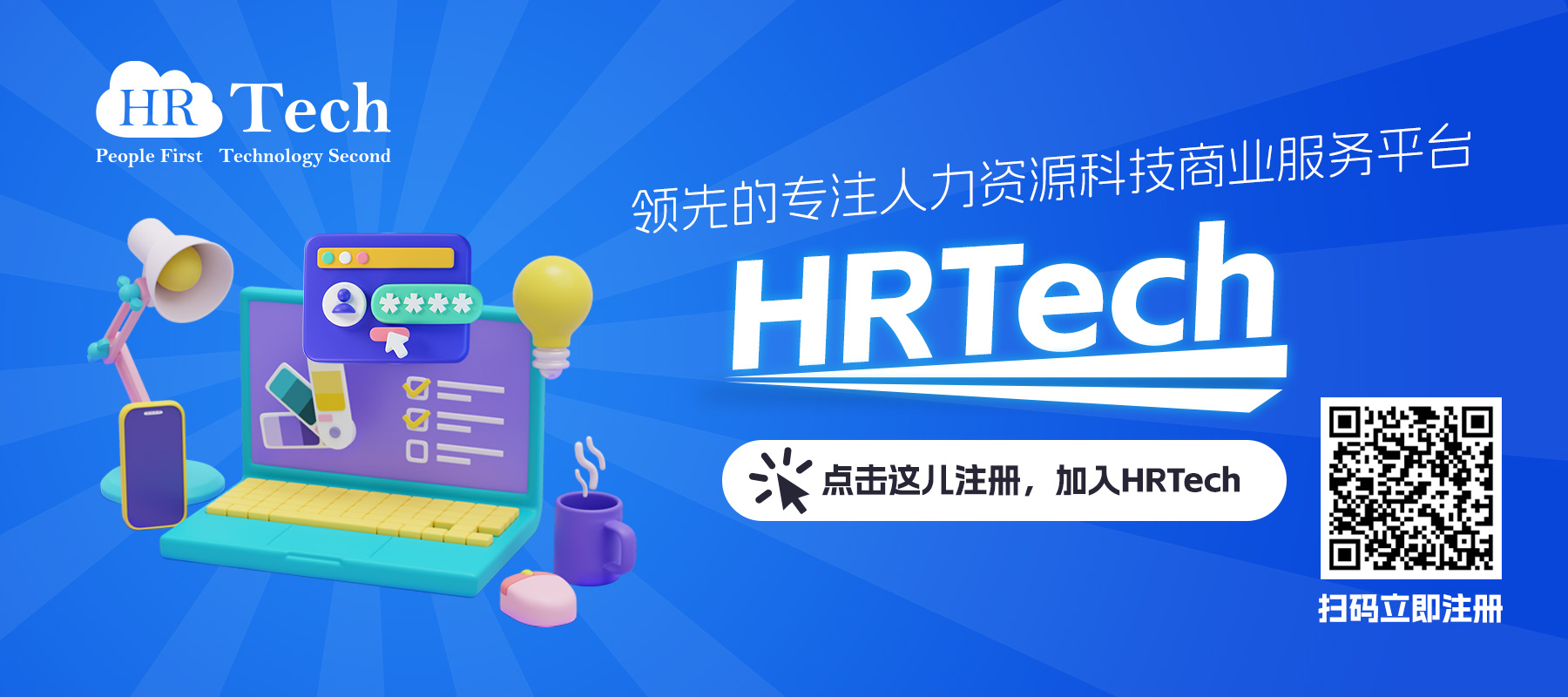资讯
Skype for Business 将更名为 Microsoft Teams
Office 365 企业订阅用户今天在登录后,看到一条来自官方的通知:Skype for Business 更名为 Microsoft Teams(归入 Teams 旗下),微软企业通讯产品线将统一,将脱离消费者品牌 Skype。
Microsoft Teams是微软针对 Slack 推出的“基于聊天的 Office 365 工作区”,曾用名 Skype Teams。微软似乎试图让客户明白 Skype for Business 和 Teams 之间的区别,改名可能是相对容易操作的做法。
目前微软官方还未有回应。
(via ZDNet)
资讯
Workday利润增长主要来源续约客户,之后或进军财务领域
日前,Workday(股票代码:WDAY)公布2017财年第二季财报,公告显示公司2017财年第二财季净利润为-8253.20万美元,同比增长23.6%;营业收入为5.25亿美元,同比上涨39.08%。
Workday,Inc.是人力资源SaaS服务商,产品涉及人力资本管理、工资单、融资管理、资助金管理、考勤处理、采购、员工费用管理和分析等模块。公司于2005年3月在内华达州成立,2012年6月在特拉华重组。
财报中显示,4900万美元的经营利润比上年同一季度的610万美元有明显增长。经营利润占收入的9.3%,相比之下一年前仅占1.6%。每股净收益24美分,比一年前的4美分有了大幅提升,并轻松超过分析师预期的15美分,此外,Workday上调2018财年展望,订购收入预计上升36%至17.57亿美元,合每股1.750美元。
Workday的CFO Robynne Sisco表示,订阅收入猛增42%,达到4.35亿美元,这主要得益于新签客户和老客户续签,其中,90%以上的订阅收入来自续约合同。销售和营销费用同比增长了36%,但总体低于收入增长得42%。这表明,客户口碑在日益拉动销售额。并且,Robynne Sisco还说,自己最近竟然接到了一名CIO主动打来询问产品的电话,要知道,过去五年,Workday一直想要拿下该名客户。
此外,由于Workday大力投入于招兵买马,每个季度的利润会出现波动,据悉,Workday本季度新增500名员工,员工总人数达到7400人。
值得一提的是,虽然人力资源是Workday的核心业务,但高管们强调,公司会关注财务方向的机会,此前该领域一直是SAP SE和Oracle的天下。Workday的联合创始人兼CEO Aneel Bhusri给出的理由是,很多企业已经完成了CRM和HCM方面的改造,下一步会关注财务升级。而Robynne Sisco补充:“我们认为财务这一块完全有理由再现HCM那样的成功。”
附:Gartner在今年6月发表的《云财务管理服务魔力象限》图
来源:36氪,作者:徐宁。转载或内容合作请联系zhuanzai@36kr.com;违规转载法律必究。
资讯
Uber宣布任命Expedia前掌门为新任CEO
尘埃落定:
在线旅游公司Expedia前CEO达拉·科斯罗萨西(Dara Khosrowshahi)现在已正式成为Uber新任CEO。Uber董事会在周二晚间发给员工的备忘录中宣布了这一任命。科斯罗萨西将于周三举行的全体员工大会上正式与员工见面。
资讯
科锐国际发布2017年半年报:扣非运营利润上涨37%
营收利润双双大幅增长
8月25日,北京科锐国际人力资源股份有限公司(股票代码:300662)发布2017年半年报:
1-6月公司实现营业收入52,981.85万元,同比增长29.57%。
归属于母公司所有者净利润3,213.65万元,比上年同期增长17.41%。
归属于上市公司股东的扣除非经常性损益后的净利润3,039.78万元,比上年同期增长37.28%,实现营收净利润双双大幅增长。
整体解决方案优势凸显,盈利能力持续增强
2017年上半年,在“一体两翼”战略驱动下,科锐国际整体解决方案优势进一步凸显,在夯实已有服务基础上,充分挖掘不同业务线间的交叉销售能力,发挥协同效应,为客户带来更全面的服务方案,更优质的服务体验。同时积极培育跨行业的新兴职能业务,助力企业跨界转型过程中所需的跨界人才获取。
数据显示:三大主营业务中,中高端人才访寻业务、招聘流程外包业务、灵活用工业务营收分别达到15,147.43万元、5,683.01万元、29,860.19万元。其中,灵活用工业务营收比去年同期增长41.33%;咨询、培训、测评、线上平台、营销制作等其他增值业务全线开展,营收达到1,527.32万元,较去年同期增长137.5%,集团整体业务盈利能力持续能增强。
业务网络扩张加速,“一带一路”深度布局
2017年上半年,科锐国际加速推进京津冀、成渝、华南等地重点产业集群区域、国家级产业园、国内二线城市等分支网址的建设,天津、西安、厦门等分公司陆续投入运营,并积极筹备成都人力资源服务产业园、深圳人力资源服务产业园的签约入驻。同时,通过旗下Capstone公司在美国新设分支机构,进一步拓展国际市场。报告期内,科锐国际全球分支机构已上升至76家,分布于中国大陆、香港、新加坡、印度、马来西亚、美国等多个国家及地区。
随着2017年5月“一带一路”国际合作论坛的召开,“一带一路”已经上升为国际共识,未来将惠及更多国家及地区。科锐国际紧抓机遇,深度布局,在内陆型改革开放新高地以及国际合作交流的重要枢纽城市 -- 西安西咸新区正式设立第三个全球候选人交付中心,更好将科锐国际发展战略与“一带一路”战略以及中西部的发展战略相匹配,为中国企业国际化人才团队配置保驾护航。
线上产品发力,“技术+服务”模式前景广阔
作为“一体两翼”战略中的“技术之翼”,科锐国际孵化的线上平台产品 -- “才客网”和“即派”也在2017年上半年取得突破,均在报告期内产生相应业务收入。其中,“才客网”定位为中高端人才访寻业务的线上平台,主打专人专岗的在线招聘管理,使用互联网技术提高招聘环节的效率,为候选人提供私密、专业、专属的高体验求职方式。“即派”定位为灵活用工业务线上平台,通过微信、电脑的“即派”客户端,管理企业客户和派驻灵活雇员。特别是针对企业小额、短期、急需用工的订单,客户通过线上操作就能实现低成本、快捷的灵活用工安排,大幅缩短传统的签约、沟通、招聘、派驻等流程。
在人工智能时代,技术革新为人力资源管理以及人力资源服务带来无限可能,技术驱动与服务融合已成为必然趋势,前景广阔。未来,科锐国际将持续加大技术领域布局,进一步扩展人力资源产业链,提升服务效能,将更优质、更智能的服务带向更广泛的客户群体。
关于科锐国际
作为亚洲领先的整体人才解决方案服务商,科锐国际在中国大陆、香港、印度、新加坡、马来西亚、美国等全球市场拥有76家分支机构、1,300余名专业招聘顾问,在超过18个行业及领域为客户提供中高端人才访寻、招聘流程外包、灵活用工、招聘培训等解决方案。在过去21年中,科锐已与2,000余家跨国集团、国内上市公司、快速成长性企业及非盈利组织建立长期合作关系。在过去的一年中,成功为企业推荐的中高级管理及专业技术职位超过15,000名,全风险灵活用工超过60,000人次。2017年6月8日,科锐国际在深圳证券交易所创业板上市(股票简称:科锐国际;股票代码:300662),成为中国首家登陆A股的人力资源服务企业。 www.careerintlinc.com
消息来源 科锐国际
资讯
中国大学生们都怎么找实习的?
随着用人成本不断上升,在一些基础岗位上,企业对实习生的需求越来越大。另一方面,教育部规定高校本科实训实习课时需占总课时30%以上,且就业形势依然严峻的当下,怎么找到实习、怎么找到好实习也成了许多大学生的心病
据实习招聘平台“实习僧”统计,全国有400万左右的大学生抱怨自己找不到合适的实习企业。那么,对当代大学生来说,什么才是合适的实习企业,他们最喜欢在怎样的岗位实习?最近,实习生招聘平台“实习僧”发布了《中国大学生实习招聘大数据分析报告》,基于420万大学生用户和10万家企业用户,选取130万样本,为我们得出了一些答案。
少年不可欺,学生也会看趋势
大学生非常了解IT互联网是毕业后很好的就业方向,因此他们在找相关实习时格外用力。当然,由于使用实习僧的大学生本身已经具备一定的互联网属性,该结果可能也与采样人群有关——不过各企业应该对不具备互联网属性的学生也不太感兴趣。
基于职位投递量,最受大学生欢迎的岗位排序为:IT互联网类职位(36.46%)>人事行政(17.43%)>市场商务(17.22%)>财经法务类(14.65%)。
而对比之下,企业最热门的职位需求为:IT互联网类职位(35.02%)>市场商务类职位(19.40%)>人事行政类职位(18.08%)>财经法务类职位(10.26%)。
看来学生和企业的岗位需求还是比较一致的。
矛盾的显现:你对实习薪资理解有误
即便岗位重合度较高,多数学生朋友对实习薪资的理解却有问题。一方面,从整体来看,学生对实习薪资的期待落于50~200元/天的区间,而企业愿意给出的薪资反而更高些;另一方面,就职互联网岗位的学生对实习薪资的期待较高,而互联网公司反而比较“抠门儿”。
孩子们都盼着互联网公司多给俩实习工资,然而……
怎样找实习才容易?
实习僧在两个维度上对学生给出了建议:投递岗位和时间。实习虽不是正式工作,面试成功也需要技巧,让数据来说话吧。
首先,不同岗位被通知面试的几率差距较大:
其次,投递简历的时机居然也有讲究,以月份为准:
逃离北上广,恐怕不容易
在就业市场上,北上广仍然是残酷的代名词。然而,一方面,北上广的互联网公司密集,能提供极多的实习岗位;一方面,许多二三线城市的产业覆盖面较窄,某些专业很难找到心仪的公司。因此,在实习问题上,北上广体现出的对人才的吸引力就和毕业后找工作的市场别无二致——不去北上广,你又有什么选择呢?
且与此同时,北上广面对的竞争反而没那么激烈。
海归别自矜,普通学校别自弃
与许多人想象出入较大的是,985、211的标签并未使实习生获得多少优势。更令人大跌眼镜的是,海归学生找实习成功的几率比国内学生还要明显低。对海归学生来说,也许名校意味着根本不需费力找实习,而普通学校则无法带来明显优势。
985、211带来的加成在多数领域几可忽略:
此外,人人都爱白纸一张的本科生:
拒你的理由有很多,英语还真不是重点
这可能是实习僧给学生朋友们最实用的忠告:一定要早点儿投递简历,先到先得哇!不信,请看企业拒绝简历的原因排行:
岗位已招满(57.94%)>经验(9.55%)>时间不合适(8.18%)>技能不匹配(7.18%)>地点不合适(4.31%)。
至于很多人担心的英语四六级,实习僧表示好多实习简历上压根儿就没提这茬儿……
综上,实习不难找,早投简历、选对岗位才是关键。由于不同岗位的面试几率相差实在有点儿大,如果你没有特殊的追求,完全可以尝试投递那些面试成功率较高的岗位。另外就是,实习面前,人人平等,名校与否绝非找实习的门槛。
本文由小田一成授权发表,经虎嗅网编辑。原文出处https://www.huxiu.com/article/210832.html
资讯
微软收购云计算创企Cycle Computing,欲将后者技术团队融入Azure平台
今日消息,微软宣布收购云计算公司Cycle Computing,该公司表示,计划将后者的高性能计算技术整合到Azure平台,有关此次交易的条款未获透露。
Cycle Computing能够通过量化、管理、优化利用,简化内部网格、虚拟环境和云端高性能计算的部署。该公司创始人兼CEO Jason Stowe透露,他们的产品被用于帮助客户抗击癌症等疾病,设计更快的火箭、更高性能的硬盘驱动器,开发优质的太阳能电板,甚至管控退休风险。该公司的旗舰产品名叫CycleCloud,支持亚马逊AWS,谷歌Compute Engine,微软Azure和内部基础设施。
在问到Cycle Computing的非Azure客户何去何从时,微软的回答是,“我们会继续为Cycle Computing的AWS和谷歌云客户提供支持。未来的产品更新将主要围绕Azure,如果客户想要迁移到Azure平台,我们也会尽力为其提供无缝迁移体验。”
Cycle Computing今年需要管理10亿核心时间,年增长2.7倍,客户每年在云基础设施上投入5000万至1亿美元。在谈到为什么要加入Azure团队时,Stowe不仅认可了微软云平台在全球的影响力和市场,还称这家科技巨头的Big Compute/HPC团队“致力研究关键技术,如InfiniBand和下一代GPU。”Cycle Computing的Linux和Windows计算和数据管理技术,将在未来成为微软Azure Big Compute团队的一部分。
微软称赞Cycle Computing为“云计算行业的领导者”,拥有“多年管理世界最大的超级计算机的经验”。
【猎云网(微信:ilieyun)】8月16日报道(编译:LOVEWINS)
资讯
智联招聘2017第四财季净利润5710万元,同比下降36.5%
本文来自凤凰科技,译者箫雨。
智联招聘公司(NYSE: ZPIN)今天发布了截至6月30日的2017财年第四季度及全年财报。财报显示,按照美国通用会计准则(GAAP)计算,智联招聘第四财季总营收为4.867亿元(人民币,下同)(约合7180万美元),较上年同期的4.061亿元增长19.8%;净利润为5710万元(约合840万美元),较上年同期的8990万元下降36.5%。
第四财季业绩要点:
——总营收为4.867亿元(约合7180万美元),较上年同期的4.061亿元增长19.8%;
在线招聘服务营收为4.331亿元(约合6390万美元),较上年同期的3.509亿元增长23.4%;
其它服务营收为5370万元(约合790万美元),较上年同期的5530万元下降2.9%;
——毛利率为93.4%,较上年同期的91.5%增长1.9个百分点;
——营业费用为3.766亿元(约合5550万美元),较上年同期的2.714亿元增长38.8%;
——营业利润为7480万元(约合1100万美元),较上年同期的9620万元下降22.2%;营业利润率为15.5%,较上年同期的23.9%下降8.4个百分点;
——按非美国通用会计准则,剔除股权激励支出,营业利润为7580万元(约合1120万美元),较上年同期的9780万元下降22.5%;营业利润率为15.7%,较上年同期的24.4%下降8.7个百分点;
——净利润为5710万元(约合840万美元),较上年同期的8990万元下降36.5%;按照非美国通用会计准则(non-GAAP),剔除股权激励支出,净利润为5810万元(约合860万美元),较上年同期的9160万元下降36.5%;
——每股美国存托股票(ADS)基本和摊薄净利润分别为1.04元(约合0.16美元)、1.02元(约合0.16美元);按非美国通用会计准则,每股ADS基本和摊薄净利润分别为1.06元(约合0.16美元)、1.02元(约合0.16美元);
——截至2017年6月30日,智联招聘持有的现金、现金等价物、限制性现金以及定期存款总额为27.647亿元(约合4.078亿美元),较截至2016年6月30日的22.892亿元增长20.8%。
2017财年业绩要点:
——总营收为19.147亿元(约合2.824亿美元),同比增长24.1%;
——在线招聘服务营收为16.088亿元(约合2.373亿美元),同比增长23.0%;
——毛利率为89.1%,较上年的91.0%下降1.9个百分点;
——净利润为1.800亿元(约合2650万美元),同比下降36.6%;按非美国通用会计准则,剔除股权激励支出,净利润为2.539亿元(约合3750万美元),同比下降11.9%;
——每股ADS基本和摊薄净利润分别为3.28元(约合0.48美元)、3.18元(约合0.46美元);按非美国通用会计准则,每股ADS基本和摊薄净利润分别为4.60元(约合0.68美元)、4.46元(约合0.66美元)。
股价表现:
智联招聘股价
智联招聘周二在纽交所的开盘价为18.77美元。截至周二收盘,智联招聘股价下跌0.07美元,报收于18.79美元,跌幅为0.37%。截至美国东部时间周二16:11分(北京时间周三4:11分),智联招聘股价在盘后交易中下跌0.01美元至18.78美元,跌幅为0.05%。过去52周,智联招聘股价最高为18.98美元,最低为13.70美元。(编译/箫雨)
资讯
齐心集团5000万人民币入股大贲科技,布局财税SaaS
日前,齐心集团发布公告参股企业大贲科技(北京)有限公司(简称大贲科技)完成工商变更登记事项,在7月27日齐心集团就在年中报里披露入股大贲科技,此次公告将参股细节公布。
公告称,齐心集团以5000万元认购大贲科技新增注册资本151.5152万元,占大贲科技全部股权的12.5%,为第二大股东,余额4848.4848万元计入大贲科技资本公积。
齐心集团是一家企业级大办公服务领域的上市公司,成立于1991年,2009年在深圳证券交易所A股上市。通过多年持续发展,齐心集团已发展为企业级综合办公用品集成供应商,产品涵盖办公用纸、办公耗材、办公文具、办公设备、办公家具、办公家电、电脑及配件、数码设备、通讯设备、生活用品等13大类30000多个单品。
在办公领域深耕的同时,齐心集团持续发展SaaS业务,2015年开始进入战略转型期,从传统的办公文具用品企业向为企业提供全方位的“硬件+软件+服务”的大办公企业转变。
大贲科技是一家企业增值税信息化解决方案及服务供应商,为企业客户提供专业化、定制化的增值税信息化系统及基于SaaS模式的“互联网+企业税务”平台服务。主要产品包括三类:一是为集团企业客户提供专业化、定制化的增值税信息化产品;二是为中小企业客户提供的基于SaaS模式的“互联网+企业税务”产品;三是为消费者提供的移动端产品。目前,大贲科技已为金融、物流、酒店、餐饮、零售、电商、制造、能源、通讯等多个行业的客户提供了整体解决方案,与100多家集团企业形成战略合作,2000多家中小企业达成了合作关系。
大贲科技的客户包括渣打银行、北京银行、北京汽车、安东石油、TCL集团、华润医药、旺旺集团、太平洋证券等国内外知名企业客户。
2017年3月份,大贲科技宣布与全程费用管理解决方案SaaS服务商红橘科技达成全面战略合作,共同布局增值税发票管理。
2017年6月23日,大贲科技与百度糯米正式达成战略合作,成为百度糯米指定企业税务服务商之一。
资讯
【HRTechChina专稿】2017年07月人力资源科技投融资小结
2017年07月人力资源科技投融资小结
公司
国别
轮次
金额
领域
投资者
报道链接
兼职乐
国内
pre-A轮
数千万人民币
招聘
飞图创投领投
http://www.hrtechchina.com/17738.html
青团社
国内
A+轮
1000万元人民币
招聘
公司管理层
http://www.hrtechchina.com/17484.html
Lever
国外
C轮
3000万美元
招聘
http://www.hrtechchina.com/17699.html
OnboardIQ
国外
910万美元
招聘
Origin Ventures领投
http://www.hrtechchina.com/17526.html
Side
国外
570万美元
招聘
Xavier Niel领投
http://www.hrtechchina.com/17535.html
CirkledIn
国外
10万美元
招聘
http://www.hrtechchina.com/17451.html
甄仕猎头
国内
天使轮
近千万人民币
招聘
http://www.hrtechchina.com/17430.html
干脆面
国内
种子轮
100万元人民
面试管理
http://www.hrtechchina.com/17490.html
猿圈测评
国内
数千万人民币
在线测评
Recruit等
http://www.hrtechchina.com/17685.html
UniCareer
国内
B轮
5000万人民币
在线教育
新东方与昆仲资本联合领投
http://www.hrtechchina.com/17570.html
小象学院
国内
Pre-A轮
数千万人民币
在线教育
创新工场等领投
http://www.hrtechchina.com/17704.html
英语流利说
国内
C 轮
近亿美元
在线教育
华人文化基金等领投
http://www.hrtechchina.com/17741.html
Duolingo
国外
E 轮
2500万美元
在线教育
Drive Capital领投
http://www.hrtechchina.com/17747.html
ExecOnline
国外
B轮
1600万美元
在线教育
NewSpring Capital领投
http://www.hrtechchina.com/17777.html
Slack
国外
2.5亿美元
在线协作
软银集团联合领投
http://www.hrtechchina.com/17755.html
Noticeboard
国外
种子轮
120万美元
在线协作
Stellaris Venture Partners领投
http://www.hrtechchina.com/17786.html
Shelf
国外
种子轮
220万美元
在线协作
SeedInvest等
http://www.hrtechchina.com/17763.html
一起写
国内
B轮
780万美元
在线协作
快手
http://www.hrtechchina.com/17626.html
商法通
国内
天使轮
500万人民币
在线法律
未透漏
http://www.hrtechchina.com/17476.html
Expert360
国外
B轮
1300万澳元
在线顾问
AirTree Ventures领投
http://www.hrtechchina.com/17731.html
Freshbooks
国外
B 轮
4300 万美元
财税
Georgian Partners领投
http://www.hrtechchina.com/17681.html
Qonto
国外
1130万美元
财税
未透漏
http://www.hrtechchina.com/17511.html
Rimilia
国外
成长融资
2500万美元
财税
Kennet Partners等领投
http://www.hrtechchina.com/17744.html
PayFit
国外
B轮
1600万美元
薪酬
Accel领投
http://www.hrtechchina.com/17529.html
活动行
国内
A+轮
数千万人民币
活动管理
腾讯等
http://www.hrtechchina.com/17433.html
Harver
国外
A轮
810万美元
简历筛选
Insight Venture Partners领投
http://www.hrtechchina.com/17439.html
Node
国外
A轮
1080万美元
CRM
Avalon Ventures领投
http://www.hrtechchina.com/17752.html
Pendo
国外
C轮
2500万美元
CRM
Meritech Capital Partners领投
http://www.hrtechchina.com/17651.html
Learnerbly
国外
种子轮
160万英镑
职业规划
Frontline Ventures领投
http://www.hrtechchina.com/17693.html
WalkMe
国外
7500 万美元
软件培训
Insight Venture Capital领投
http://www.hrtechchina.com/17789.html
Comtravo
国外
A轮
964万美元
差旅
Creandum等
http://www.hrtechchina.com/17520.html
云脑科技
国内
A轮
数千万人民币
云服务
翊翎资本领投
http://www.hrtechchina.com/17608.html
Bespin Global
国外
A轮
数亿元人民币
云服务
君联资本领投
http://www.hrtechchina.com/17618.html
番茄表单
国内
天使轮
数百万人民币
小工具
http://www.hrtechchina.com/17523.html
收购
收购方
被收购方
金额
意义
思科
Observable Networks
尚未披露
拓展应用程序和云计算业务
http://www.hrtechchina.com/17635.html
网龙
JumpStart
尚未披露
是对网龙将教育和游戏业务完美结合并充分利用的最好证明。
http://www.hrtechchina.com/17460.html
作者:於丹 转载请备注文章出处
2017年07月,HRTechChina共收录了34家人力资源科技行业投融资信息以及2家收购信息。投融资信息分别为:国内13家,国外21家。同时,编辑又把人力资源科技行业再进行领域细分,本月收录的细分领域涉及:招聘;在线教育;财税;云服务;在线协作;CRM等几大类。
如何将实习、兼职等灵活用工形式发展壮大,帮助几百万在校大学生获得良好的职场预热,是近年来人力招聘领域发展的重点。兼职乐宣布获数千万pre-A轮融资,由飞图创投领投,长石资本和猎聘跟投。此前,兼职乐曾获得险峰长青和猎聘的天使轮投资。
兼职乐由孙旭创立于2015年3月,专注于现代服务业的灵活用工。帮助企业招聘短期用工人员,同时提供相关的组织、管理和监督服务,帮助企业一站式解决前期招聘和后期管理的问题。
青团社创始人邓建波向记者独家透露,青团社已经近期完成由企业管理层自筹的1000万元A+轮融资,这在当前主要以风险投资为主创业市场显得例外。
青团社在2015年9月获得华旦天使100万元投资,而后获得腾讯前高级副总裁刘成敏领投、立元创投、华旦天使、初心资本跟投1000万,2016年4月份获得猪八戒网5500万元A轮融资。在上轮融资完成一年之后,青团社选择由核心管理层11人共同完成的A+融资,同时邓建波否认了企业资金链存在问题。其解释为这是管理团队希望获得更多股权,平衡此前融资过多稀释的股份。”
国外招聘方面,帮助企业轻松招聘“临时工”,OnboardIQ获910万美元融资。OnboardIQ开发了一套个性化招聘系统,移动端优先,抛弃了邮件转而使用SMS进行交流,并利用数据和分析来帮助企业计算求职者适合特定岗位的几率。此轮融资由Origin Ventures领投,跟投的有SoftTech VC、Crosslink Capital以及Y Combinator。截至目前,OnboardIQ共融资1075万美元。
法国初创公司 Side 近期获投570万美元,领投方为 Xavier Niel, Aglaé Ventures, Jacques-Antoine 跟投,本轮融资还囊括了一些现有的投资者, Connect Ventures, Fly Ventures 和 TheFamily。
Side 就是一个学生兼职平台,企业发布工作,学生按自身情况申请。工作几天或者几周,来赚取相应的报酬。同时 Side 还会帮公司管理所有行政工作,帮企业筛选所有报名人员,并负责培训相关技能,随时提供咨询服务,发工资。
以上几家获得融资的国内外公司都是针对“兼职”招聘,“兼职”无疑近几年一个相当大的浪潮,在一切都能共享的前提下,“共享劳动力”,看起来是一个不错的选择。
专注深耕于华南区互联网+中高端人才服务的甄仕猎头获得数百万人民币的融资。JusHunter甄仕咨询是一家币天使轮融资。甄仕成立于2010年,由郭晓宜和林长锦两人共同创立,近7年以来专注深耕于华南区互联网+中高端人才服务。
在线教育方面,在线职场教育科技平台UniCareer(职优你)7月11日在北京举行发布会,宣布公司在今年6月宣布完成B轮融资。本轮融资由新东方与昆仲资本联合领投。此前曾报道过,UniCareer于去年完成3000万人民币的A轮融资。UniCareer可以让学生了解行业知识,提前规划自己的求职路径,同时,UniCareer可帮助在校生获得丰富的实习机会。
“人工智能、大数据”领域的垂直 IT 培训机构 — 小象学院宣布完成数千万人民币的 Pre-A 轮投资,由创新工场和头头是道文化基金联合领投。小象学院的课程聚焦在人工智能、大数据、数据分析这三块,通过直接对接 AI 用人企业,帮助学员完成“端到端”的一站式服务。
英语流利说宣布,已完成近亿美元 C 轮融资,此轮融资由华人文化产业投资基金(CMC)、双湖资本领投,挚信资本、IDG、GGV、心元资本、赫斯特资本等早期机构投资者全部跟投。流利说创立于 2012 年,以移动端 App “英语流利说”为主要产品,自主研发了英语口语和写作自动评测引擎。其已发布的产品还包括留学考试测评 App “雅思流利说”。
语言学习平台Duolingo也宣布获得 2500 万美元 E 轮融资,公司估值达7 亿美元。此轮融资由Drive Capital领投。截至目前,Duolingo融资总额达 1.08 亿美元。Duolingo在 2011 年获 Union Square Ventures 领投 330 万美元 A 轮融资;2012 年获由 NEA 领投的 1500 万美元 B 轮融资;2014 年获得由 Kleiner Perkins Caufield & Byers 领投的 2000 万美元 C 轮融资;2015年获 Google Capital 领投的4500 万美元D轮融资。
目前,Duolingo的竞争对手包括Coursera、Babbel、EdX、Lynda、PluralSight、TutorGroup等。在中国,也有类似的语言学习平台,像ChineseSkill就被称为汉语版Duolingo。
在线协作方面,企业通讯服务Slack正融资2.5亿美元,日本电信巨头软银集团联合领投,估值超50亿美元。最新一轮融资令Slack的估值大幅飙升。在去年4月的一轮2亿美元融资中,Slack的估值为38亿美元。
不过,新估值仍与Slack或高达90亿美元的潜在卖身价相去甚远。据彭博社上月报道称,亚马逊等科技巨头均有意收购Slack。
除此之外,班加罗尔企业通讯平台Noticeboard日前完成120万美元种子轮融资,这是该公司的首次外部融资,领投方为Stellaris Venture Partners。
企业信息管理平台Shelf宣布完成220万美元种子轮融资,资方为SeedInvest、CT Innovations和NY Angels。目前,Shelf正面临来自微软SharePoint、Confluence和Bloomfire的竞争。
财税方面,总部位于加拿大多伦路的云会计“软件即服务”初创公司 Freshbooks 宣布获得了一笔 4300 万美元(5700 万加元)的 B 轮融资,领投方为 Georgian Partners,参投方包括 Accomplice 和 Oak Investment Partners。
成立于2008年的Rimilia宣布完成2500万美元成长融资,由伦敦基金Kennet Partners和Eight Roads Ventures联合领投。该公司宣称能够提高先进匹配和征信工作的效率和速度,几乎实现整个过程的自动化。
法国初创公司 Qonto,从上一轮投资者, Valar Ventures 和 Alven Capital 手里,又拿到了新的一笔,价值1130万美元的融资。公司于近日开始正式营业。业务模式简单来说,帮助企业客户搞定繁琐的银行业务,让大企业、中小企业和初创公司在不到5分钟的时间里就开设好一个银行账户。
收购方面,互联网社区创建者—网龙网络控股有限公司宣布,公司已经成功收购教育产品供货商JumpStart。JumpStart总部设于洛杉矶,专门为K-12阶段的儿童研发并提供创意和教育类游戏,创办于1991年,致力于通过各种教学游戏让学习变得简单有趣,迄今已发展成为行业标杆。
此次收购使网龙有机会将自身在网络游戏和教育方面的知识和经验结合起来,并将其转移到其他互联网社区的搭建上,这将为公司释放大量的潜力和价值。
往期融资回顾:
2017年06月人力资源科技投融资小结
2017年05月人力资源科技投融资小结
2017年04月人力资源科技投融资小结
2017年03月人力资源科技投融资小结
2017年02月人力资源科技投融资小结
更多人力资源科技投融资小结,请点击:http://www.hrtechchina.com/category/capital/capitalmonthly
关于HRTechChina
HRTechChina 是中国领先的专注人力资源科技的首家媒体平台。
HRTechChina核心报道中国人力资源科技创新企业及产品信息,关注并实时分享全球的人力资源科技资讯。同时,以原创角度独家报道人力资源科技公司和创业公司;每月关注并独家发布人力资源科技投融资数据及报告,业已成为人力资源科技领域创业者以及行业精英获取全球人力资源科技行业资讯和动态的主要渠道。
HRTechChina举办规模盛大的HRTech中国人力资源科技论坛培训和诸多的活动形式,促动人力资源科技行业的交流;举办CEO硅谷创新参访论坛等,引领中国人力资源科技公司,创业者,行业精英等与国外最火热的HRTech创业者及公司沟通交流;HRTechChina同时关注创业项目和投融资服务,为双方搭建桥梁。
HRTechChina也拥有独立的网站,微信公众号,社交媒体账号(微博、Twitter、Facebook、Linkedin)等渠道,线上线下多途径全方位分享最新最权威的人力资源科技行业资讯和发展动态。
HRTechChina并且与世界其他知名人力资源科技组织有着密切的合作与交流。HRTechChina的受众不仅来自于全国各地,专访报道更推送至全球,也得到了为数众多的国外人力资源科技领域精英的关注,共同致力于中国人力资源科技的进步和发展。
联系我们
上海总部:上海市浦东新区商城路660号乐凯大厦1013室
电话:021—31266618
微信:HRTechChina
网站:www.hrtechchina.com
邮件地址:service@hrtechchina.com
资讯
阿里云发布了19款企业级云服务器,垂直场景呈现深度定制化趋势
在一般的互联网企业看来,云服务器最大的要求就是稳定,其他性能上都差不多。不过,今天的NEXT ECS发布会上,阿里云一下发布了19款不同的企业级ECS(云服务器)。
具体产品实例可以参考下面的PPT:
覆盖场景更丰富
产品实例排列的横向分布,主要是针对不同的大类场景做分类。
首先是最基础的三大产品:通用型ECS处理器与内存资源配比为1:4,足以处理一般互联网场景,比如像36氪这种比较传统的浏览、阅读场景。计算型的处理器与内存资源配比为1:2,适用于视频渲染、图像计算等对计算的要求更大的场景。内存型的处理器与内存资源配比为1:8,适用于高网络包收发场景,如视频弹幕,电信业务转发等。
高主频计算型主要是针对未更新游戏引擎,依然用单核处理器支持业务的游戏公司客户。毕竟不是行业趋势,因此仅适用于少数场景,在某些非互联网的高性能计算场景下也有可能用到。
储存增强型则分为能大幅减少延时的本地SSD(固态硬盘)型和大数据型,后者的数据盘使用的是HDD(机械硬盘),相比起原来的云盘一份数据写三份,HDD只写一份,存储成本会大幅降低,同时存储带宽是原来的5倍。
最后是针对最近风口上的机器学习场景,推出GPU系列和FPGA系列。阿里云ECS产品总监、阿里巴巴资深技术专家蒋林泉在接受记者专访时介绍,GN5搭载的是英伟达P100 GPU,这是国内公有云厂商首次推出单机八卡版本的云服务器。
这是阿里云第一次系统地发布了一整套企业级ECS产品线,他们表示这约覆盖了173种企业业务场景。
这可以通俗地理解为,一般的公司可能给每个员工买台iPhone就够了,但现在推出iPad、iPad Air、iPad Pro和MacBook等针对不同场景和需求的产品,用户可以根据自己不同的服务场景,搭配购买不同的服务器。推出的产品越丰富,可能覆盖的业务场景就更多。
稳定性和性能的提升
稳定、性能、价格,这是企业选购服务器要考虑的几个因素。
蒋林泉表示,之前,阿里的ECS产品覆盖的场景还不够,相对于以前的ECS产品,这次的企业级产品线除了数量更多、产品更丰富之外,稳定性和性能也有了很大的提升。稳定性和性能受到软硬件情况影响。
稳定,简而言之就是少宕机,稳定性/可用性越高,宕机的概率就越低。这除了受数据中心本身的可用性限制之外,还有操作系统的运维能力和虚拟化技术。阿里云在发布会上表示其IDC历史运行可用性为99.999%,操作系统用的是其自研的飞天操作系统。
稳定性可以说是每一个企业选购首要考虑的条件,发布会现场发生一个小插曲,一位用户在现在的提问环节反馈在使用阿里云ECS过程中遇上了宕机,因此耽误了业务。从提问中目测他使用的是阿里云非企业级的产品。蒋林泉也提到,阿里云这次发布的云服务器之所以称为企业级,其相较于之前的ECS在稳定性上会有很大的提高。
这次发布会上,阿里云还推出了其最新的明星产品——基于英特尔 Skylake CPU 同时拥有25Gb最大内网带宽的ECS产品,已经在青岛地域发售。腾讯云7月推出的第三代云服务器也开放了内测申请,其中部分机型在底层搭载了25GB网卡。
基础设施的升级之外是技术的升级,阿里云的分布式存储技术升级到了第三代,部分服务器使用了Apsara vSwitch,蒋林泉介绍,两方面的技术升级分别让云盘IOPS吞吐和网络PPS吞吐性能提升300%。
云服务器随着场景多样化将愈发复杂
阿里云ECS的19款产品,最早的从去年10月开始发布,最新的到未来几天开始发售。
从产品线能看到,云服务器越来越多样和复杂。蒋林泉介绍,这与整个互联网业态越来越丰富、公司体量越来越大有关。“在不同垂直场景上,对计算性能的要求不同,峰谷的形态不同。”比如从前根本没有直播弹幕这种场景,每秒钟有海量用户发弹幕,弹幕还要同时发到每位用户的屏幕上,这对PPS和延时的要求很高。
“不同体量的客户在逼迫我们成长。”蒋林泉曾经介绍,阿里云的第一代云服务器从从Xen虚拟化架构、千兆网络起步,主要客户为站长和互联网小客户,到2014年底不再部署这类服务器;第二代云服务整体架构进化为KVM +万兆网络,储存、计算和网络能力,以及稳定性都有了提高,开始形成对中大型客户的初步服务能力;第三代则是今天正式发布的企业级产品线。
云服务器产品发展路径呈现出对垂直场景的深度定制化。蒋林泉将这种趋势为服务客户的深度和广度的提高。深度指在同一个场景下,随着公司业务和体量壮大,客户对性能的要求就会越来越高,比如电商的秒杀,会使业务峰值更高、更为陡峭;广度则针对新的技术形态和业务场景出现,云服务厂商要快速响应,比如人工智能型产品,计算逻辑就和以前不同。蒋林泉说,最新的GPU计算型产品,需要厂商在软硬件上做适配,包括服务器、虚拟化技术等环节做全链路的定制化。他认为,做到这两点,才不会让云服务器的性能阻碍业务的继续或者创新。
来源:36氪,作者:卢晓明,如若转载,请注明出处:http://36kr.com/p/5087401.html
扫一扫 加微信
hrtechchina
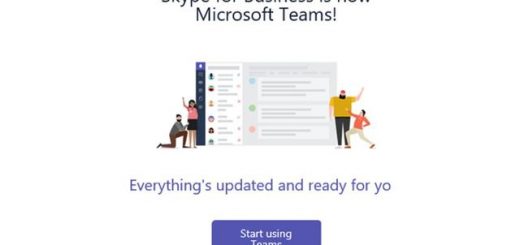 资讯
资讯
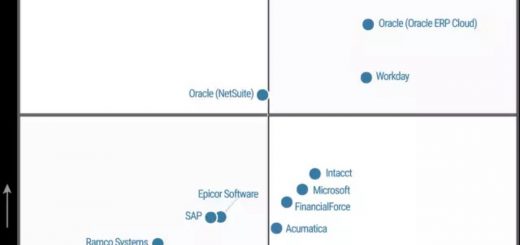 资讯
资讯
 资讯
资讯
 资讯
资讯
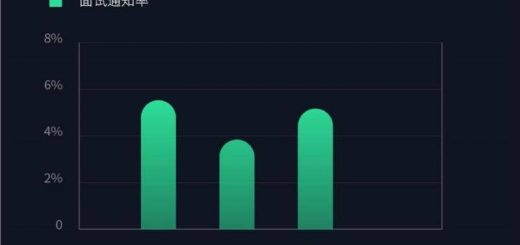 资讯
资讯
 资讯
资讯
 资讯
资讯
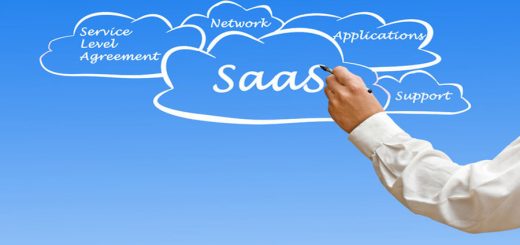 资讯
资讯
 资讯
资讯
 资讯
资讯





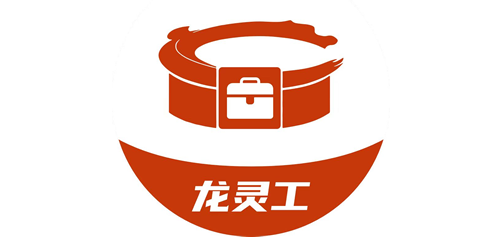
 扫一扫 加微信
hrtechchina
扫一扫 加微信
hrtechchina



